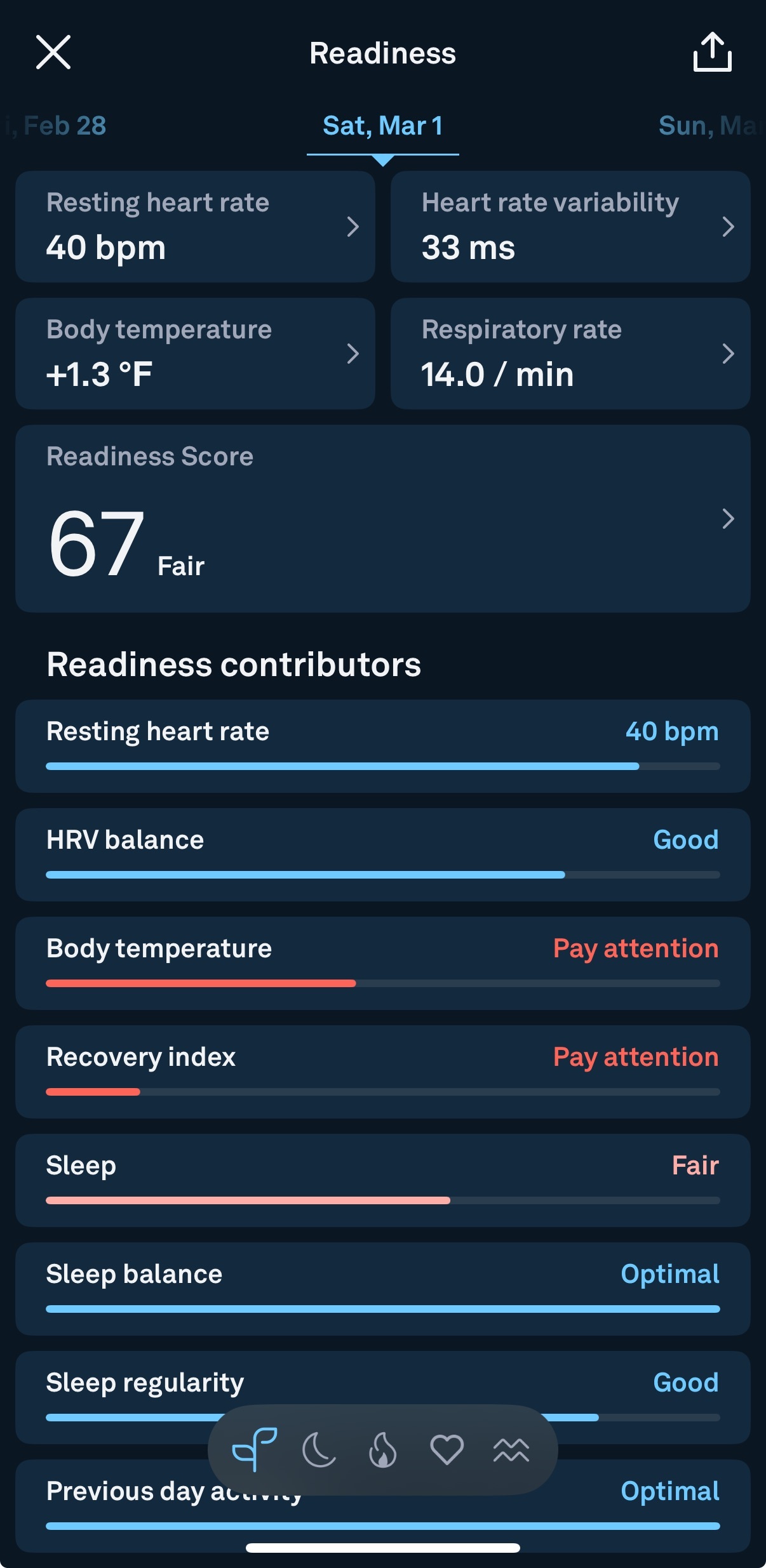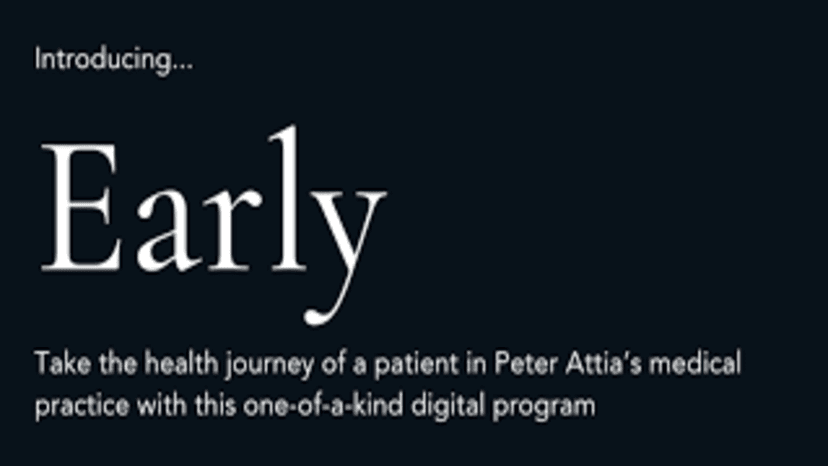Sleep is one of the most powerful yet overlooked aspects of health and longevity. It influences everything from brain function to immune health, metabolism and emotional resilience. Despite its importance, many people struggle to get enough (or choose not to prioritize) high-quality sleep, leading to long-term consequences.
For years, I made the mistake of neglecting my sleep. At first, I wore my “I’ll sleep when I die” mentality as a badge of pride, signaling my commitment to work around the clock on my professional endeavors. Little did I recognize that my “I’ll sleep when I die” mentality should have been interpreted as “I’ll die early (or at least, live unhealthily) if I don't sleep”. And even once I started recognizing the tremendous value of sleep, I struggled to obtain sufficient high-quality sleep due to poor sleep hygiene (eating food too close to bedtime and too much pre-bed screen time). Sound familiar?
In this guide, we’re exploring everything you need to know about sleep—how it works, why it’s essential and the best strategies to optimize it. Whether you’re looking to improve your cognitive performance, boost recovery or simply wake up feeling refreshed, this review will provide science-backed insights and practical solutions.
Why Sleep Matters
The Science Behind Sleep’s Role in Health
Sleep is not just "rest"—it’s an active process that regulates nearly every function in the body. During sleep, the brain clears toxins, the immune system strengthens and the body repairs itself. Chronic sleep deprivation has been linked to:
Increased risk of heart disease, diabetes and obesity
Weakened immune function
Poor cognitive performance and memory loss
Increased anxiety and depression
Slower physical recovery
In short, without enough sleep, your body operates in a state of chronic stress, accelerating aging and reducing overall well-being.
The Sleep Cycle: Understanding How Sleep Works
Sleep is divided into different stages:
NREM (Non-Rapid Eye Movement) Sleep
Stage 1: Light sleep, transitioning into deeper sleep
Stage 2: Heart rate slows, body temperature drops and brain waves change
Stage 3 (Deep Sleep): The most restorative phase, crucial for physical recovery and immune function
REM (Rapid Eye Movement) Sleep
Brain activity increases and most dreaming occurs
Plays a key role in memory consolidation, creativity and emotional regulation
A full sleep cycle lasts around 90 minutes and adults typically complete 4–6 cycles per night.
How Much Sleep Do You Really Need?
The general recommendations are:
Newborns: 14–17 hours
Children & Teens: 8–10 hours
Adults: 7–9 hours
Older Adults: 7–8 hours (though sleep may be more fragmented)
And for fun, those of us who have dogs can sleep well (pun intended) knowing that all of those naps are completely normal - dogs on average sleep 14 - 16 hours a day, depending on age and breed
Some rare individuals with a genetic mutation can function well on just 4 to 6 hours, but for most people, less than 6 hours is truly detrimental.
Common Sleep Disruptors and How to Fix Them
Blue Light Exposure: Suppresses melatonin production. Fix: Avoid screens 1–2 hours before bed or use blue light-blocking glasses
Irregular Sleep Schedule: Disrupts circadian rhythm. Fix: Stick to a consistent bedtime and wake time
Caffeine and Alcohol: Both disrupt deep sleep. Fix: Avoid caffeine after 2 PM and limit alcohol intake (or better yet, avoid it altogether)
High Stress Levels: Increases cortisol, making sleep harder. Fix: Practice relaxation techniques like meditation or journaling
Poor Sleep Environment: Noise, temperature and light matter. Fix: Keep your bedroom cool, dark, and quiet. Pro tip: invest in a simple sleep mask, especially a 3D one, offering cushion and extra spacing
10 Science-Backed Ways to Improve Sleep
1. Maintain a Consistent Sleep Schedule
Going to bed and waking up at the same time (even on weekends) helps regulate your internal clock.
2. Get Morning Sunlight
Exposure to natural light in the morning helps set your circadian rhythm for better sleep at night. I cannot stress this enough. The earlier you get outdoors, the better. On cloudier days, you’ll need a bit more time to reap the benefits relative to sunnier days but rest assured that even on the cloudiest of days, getting natural sunlight in your eyes is orders of magnitude more effective than relying on internal lighting.
3. Create a Pre-Bedtime Routine
Shut down all technology at least an hour before bedtime. Wind down with reading, meditation or stretching to signal your body that it’s time to sleep.
4. Exercise Regularly (But Not Too Late)
The path to better sleep begins long before bedtime. Both strength training and aerobic exercise improve sleep. The key is to try to finish any workouts at least 3 hours before bed. If you’re like me, you’re revved up after training which is the last thing you need prior to bed.
5. Optimize Your Sleep Environment
Temperature: 60–67°F is ideal (if you and your spouse prefer vastly different temperatures, try a cooling mattress. My wife and I are considering an Eight Sleep mattress as I prefer to sleep far cooler than she does)
Darkness: Use blackout curtains or an eye mask
Quiet: Consider white noise machines or earplugs
Pro tip: a hot shower before bed works wonders. Moving from the warm water into your natural bedroom environment will feel chillier, helping to induce sleepiness.
6. Limit Caffeine and Alcohol
In you've read our article on everything you should know about caffeine , you already know that caffeine stays in your system for hours 6 - 8 hours (plus or minus several hours depending on how you metabolize caffeine) making it problematic if consumed too late in the day. The same goes for alcohol which can wreak havoc on one's sleep, especially REM sleep later in the night. Be smart about whether and when you consume both to optimize your sleep quality.
7. Try Magnesium and Other Sleep Supplements
Magnesium glycinate: Helps relax muscles and calm the nervous system
L-theanine: Supports relaxation without sedation
Melatonin: Best for short-term use to reset the sleep cycle especially when dealing with jet lag. I personally avoid melatonin as I find it ineffective for me, but everyone is different. The broader punchline here is that experimenting with what works best for you is the best way to evaluate the merits of various sleep supplements and daytime and nighttime routines
8. Use Technology Wisely
Wearable devices like the Oura Ring or WHOOP can track your sleep patterns and provide insights into how to improve them.
I love my Oura Ring and I’ve found it to be tremendously effective in determining how certain actions in my life impact my sleep. It’s also a leading indicator for me, revealing when I might appear to be coming down with illness. Here’s a screenshot of my Oura output on my first day battling Norovirus:

9. Manage Stress and Anxiety
Breathwork, mindfulness meditation and gratitude journaling can reduce nighttime stress and improve sleep quality. It sounds hokey but it truly works.
10. Don’t Rely on Sleep Medications
Many prescription sleep aids sedate rather than promote natural sleep, leading to dependency and side effects. Natural solutions and behavioral changes are safer long-term strategies.
The Future of Sleep: Emerging Trends
Sleep optimization is becoming a major focus in wellness and longevity. Innovations on the horizon include:
AI-powered sleep coaching that analyzes biometric data
Personalized mattress adjustments based on body temperature and movement. We’re already seeing this unfold with brands like Eight Sleep
New wearable technology providing real-time sleep data
Advanced supplements targeting deeper REM and slow-wave sleep
As research continues, we’ll gain even more insights into optimizing sleep for health and performance.
Final Thoughts: Make Sleep Your Superpower
Sleep isn’t a luxury—it’s a necessity. Prioritizing sleep leads to better energy, sharper thinking, improved health and even longer life. And luckily for us all, this powerful lever to improve health doesn’t require a large budget, specialized equipment or a massive investment of time or planning. It’s something we can all start taking action on today.
By understanding how sleep works and applying these evidence-based strategies, you can transform your nights and supercharge your days.





















